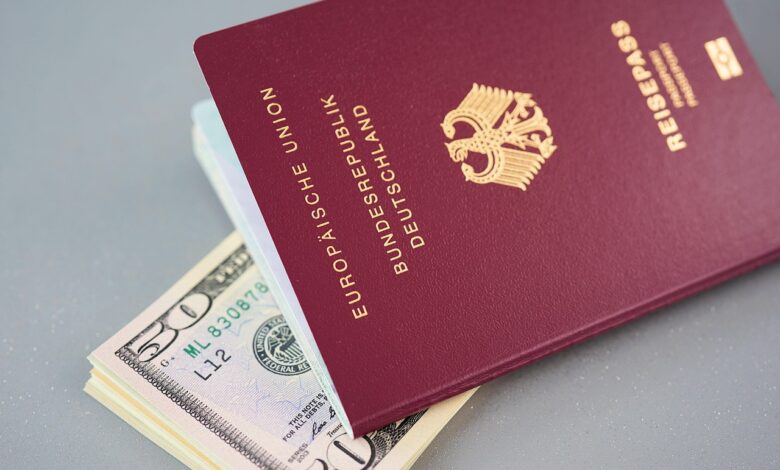How to Appeal a Visa or Residency Denial in Italy

Receiving a visa or residency permit denial can be frustrating and stressful, especially if you have plans to live, work, or study in Italy. However, the Italian legal system provides avenues for appealing such decisions. If your application has been rejected, it’s important to act promptly and follow the correct procedures to challenge the decision.
Here’s a step-by-step guide on how to appeal a visa or residency denial in Italy:
1. Understand the Reason for Denial
The first step is to carefully review the rejection letter or notification from the Italian authorities. This document should outline the specific reasons why your application was denied. Common reasons for visa or residency denials include:
- Incomplete or incorrect documentation.
- Failure to meet financial requirements.
- Lack of proof of accommodation.
- Criminal record or security concerns.
- Misrepresentation of information.
- Exceeding the allowed duration of stay under a tourist visa.
Understanding the reason for the denial is crucial because it will guide your appeal strategy and help you address any deficiencies in your application.
2. Act Within the Deadline
In Italy, you typically have 30 days from the date of the denial to file an appeal. Missing this deadline may result in losing your right to contest the decision. It’s essential to act quickly and gather all necessary documents and evidence to support your case.
3. File an Appeal with the Territorial Commission (Commissione Territoriale)
If your visa or residency permit was denied by the Questura (local police headquarters) or the Italian consulate, you can file an appeal with the Commissione Territoriale per il Riconoscimento della Protezione Internazionale (Territorial Commission for International Protection). While this body primarily handles asylum cases, it also reviews appeals related to certain types of permits.
Steps to File an Appeal:
- Prepare Your Appeal Letter: Write a formal letter explaining why you believe the decision was incorrect. Include:
- Your personal details (name, passport number, etc.).
- The reason for your initial application.
- A clear explanation of why the denial should be overturned.
- Any supporting documents that address the issues raised in the rejection.
- Submit the Appeal: Submit your appeal letter and supporting documents to the relevant authority:
- For visa denials: Contact the Italian consulate where you applied.
- For residency permit denials: Visit the Questura that processed your application.
- Pay the Fee: There may be a small administrative fee associated with filing the appeal. Check with the relevant office for details.
4. Seek Legal Assistance
Navigating the Italian immigration system can be complex, especially if you’re unfamiliar with local laws and procedures. Hiring an experienced immigration lawyer or consultant can significantly improve your chances of success. A lawyer can help you:
- Draft a strong appeal letter.
- Gather additional evidence to support your case.
- Represent you during hearings or meetings with officials.
- Ensure compliance with deadlines and procedural requirements.
You can find qualified immigration lawyers through:
- Local bar associations (Ordine degli Avvocati ).
- Online directories specializing in immigration law.
- Recommendations from expat communities or forums.
5. Attend the Hearing (If Required)
In some cases, the appeal process may involve a hearing where you’ll have the opportunity to present your case in person. During the hearing:
- Be prepared to explain your situation clearly and concisely.
- Bring all relevant documents, including updated financial statements, employment contracts, or proof of accommodation.
- Remain calm and respectful when addressing the commission members.
6. Wait for the Decision
After submitting your appeal, the territorial commission or relevant authority will review your case. The timeline for a decision varies but typically takes several weeks to months. You will receive written notification of the outcome.
Possible Outcomes:
- Appeal Granted: Your visa or residency permit is approved, and you can proceed with your plans.
- Appeal Denied: If your appeal is unsuccessful, you may explore further legal options, such as filing a lawsuit in the administrative court (Tribunale Amministrativo Regionale , or TAR).
7. Consider Filing a Lawsuit (Optional)
If your appeal is denied and you believe the decision was unjust, you can escalate the matter by filing a lawsuit with the Tribunale Amministrativo Regionale (TAR) . This step involves more time, effort, and legal fees, so it’s advisable to consult with a lawyer before proceeding.
Steps to File a Lawsuit:
- Hire a lawyer specializing in administrative law.
- Prepare and submit a formal complaint to the TAR.
- Attend the court hearing and present your case.
- Await the final judgment.
8. Reapply (If Applicable)
In some cases, reapplying for a visa or residency permit may be a simpler option than appealing. Before doing so, ensure that you’ve addressed the issues that led to the initial denial. For example:
- Provide complete and accurate documentation.
- Meet all financial and accommodation requirements.
- Correct any errors in your application.
Note: Reapplying does not guarantee approval, so weigh this option carefully.
9. Tips for a Successful Appeal
- Be Honest and Transparent: Avoid exaggerating or falsifying information, as this could harm your credibility.
- Address All Issues: Ensure that your appeal directly addresses the reasons cited in the denial letter.
- Provide Strong Evidence: Include bank statements, rental agreements, employment contracts, or other documents that strengthen your case.
- Stay Professional: Maintain a polite and professional tone in all communications with authorities.
- Keep Copies of Everything: Save copies of all correspondence, applications, and supporting documents for your records.



